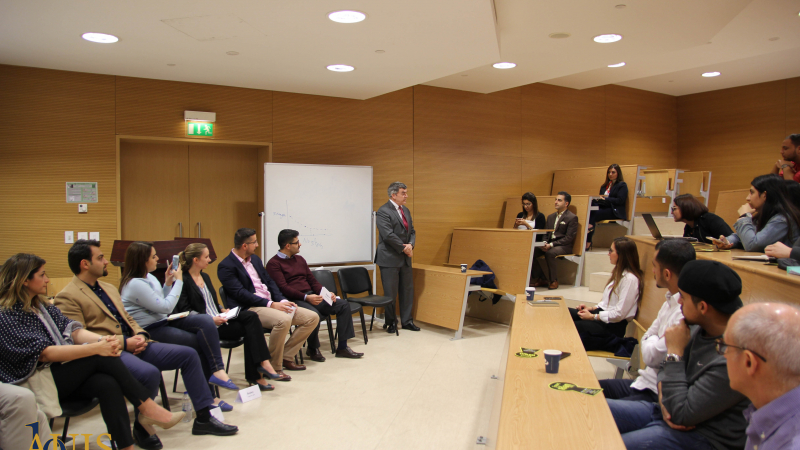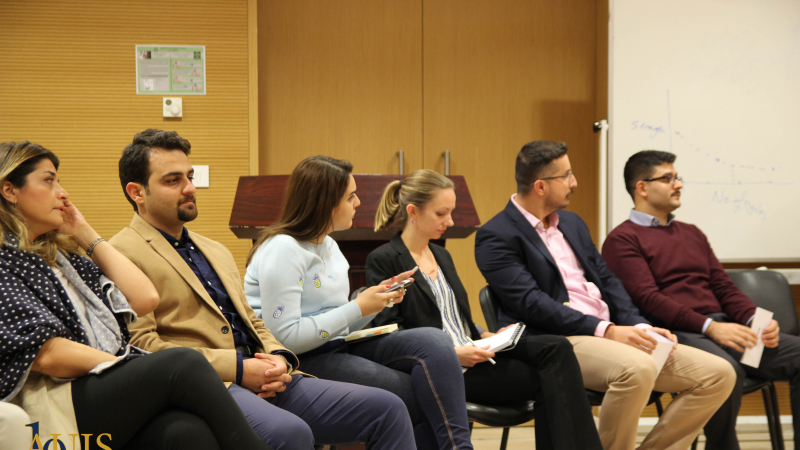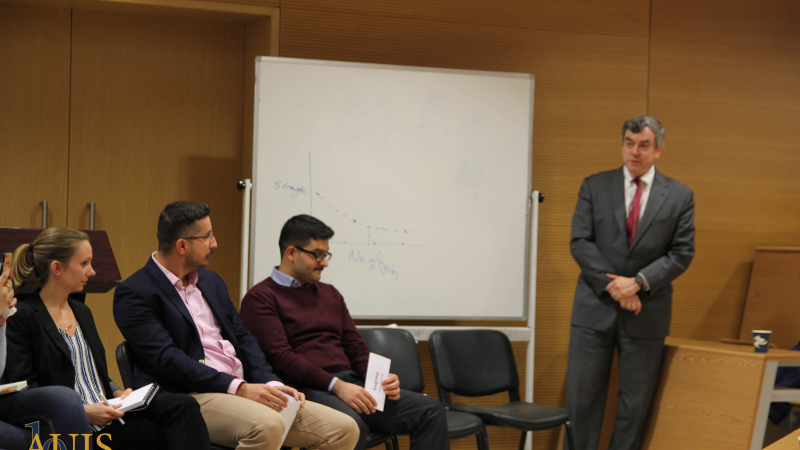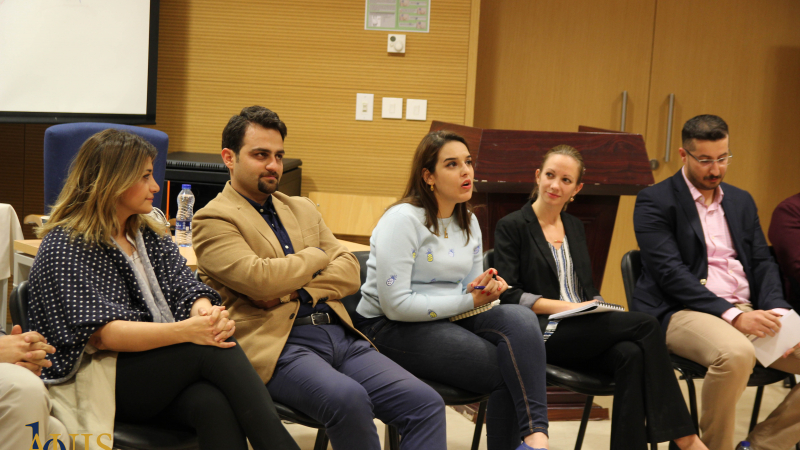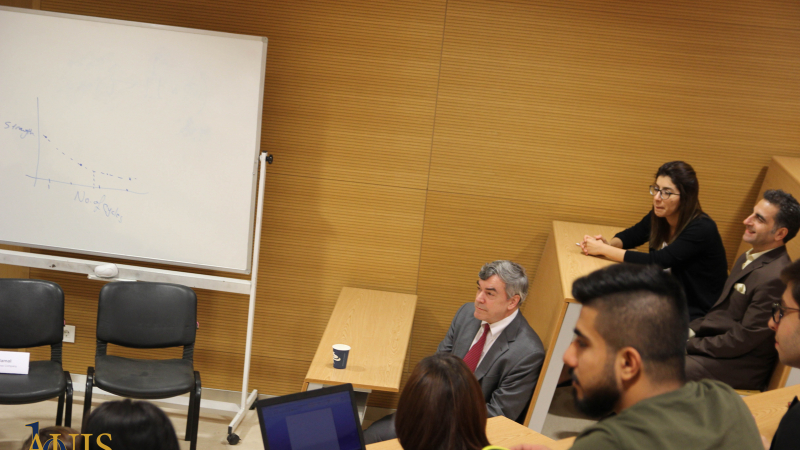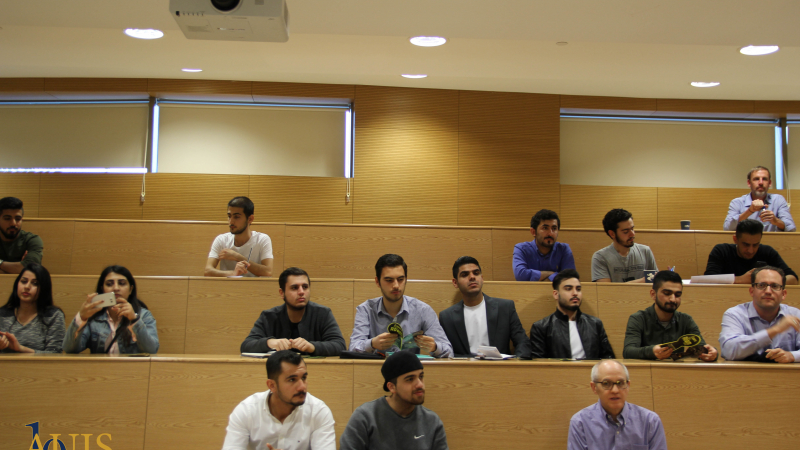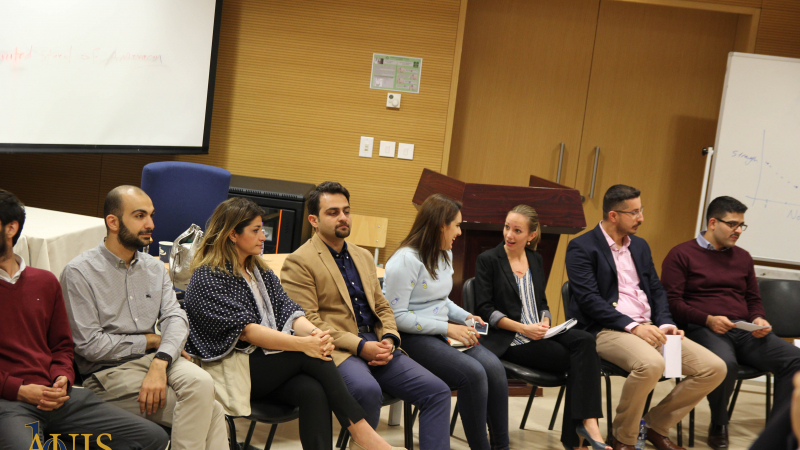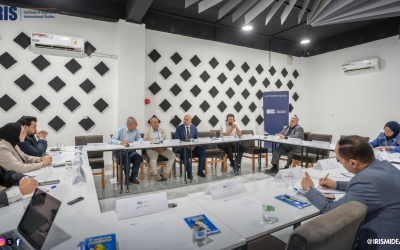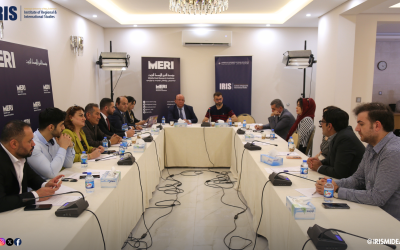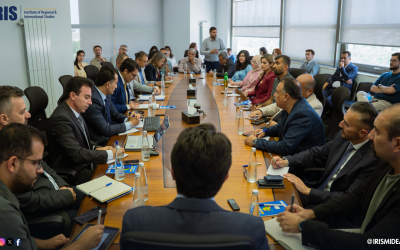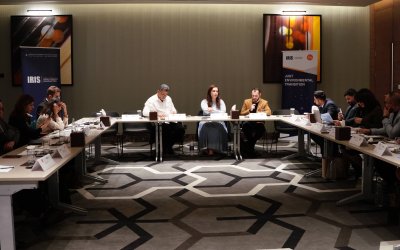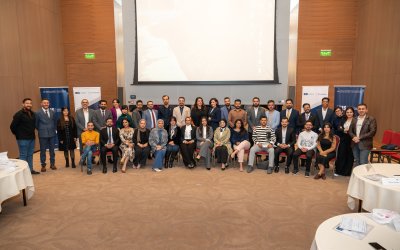On November 16, 2017, IRIS hosted an informal discussion and Q & A session with entrepreneurs in the Kurdistan Region and Iraq as part of Global Entrepreneurship Week (“GEW”), a weeklong worldwide event hosted by the Global Entrepreneurship Network (“GEN”). GEN is a group aimed at providing support to aspiring entrepreneurs through access to investors, researchers, and policymakers across 170 countries. Each year since November 2008, it has hosted GEW to celebrate the achievements and experiences of entrepreneurs through activities, competitions, and networking events.
The AUIS Entrepreneurship Week event aimed to provide AUIS students with perspectives, challenges, and advice on starting businesses in the current entrepreneurial environment. It began with remarks by AUIS President Bruce Ferguson, an educator, entrepreneur and investor with a lifelong interest in technology-based innovation, who discussed his own background, as well as the importance of entrepreneurship in Iraq and Kurdistan today. After a brief introduction, he opened the floor to the panel of eight entrepreneurs who shared their experiences of starting businesses in the country.
The panelists included Hallo Sagrma, director of Indigo Canvas; Hevi Manmy, CEO of Bazary Online; Alice Bosley, Co-Founder of FiveOne Labs; Fatin Al-Weli, Co-Founder of Escape the Room Iraq; Bayad Jamal, CEO of Bayad Inc.; Talar Noore, Founder and CEO of Worldwide Business Management, LLC; Rawaz Rauf of Hiwa Rauf for Investment and Development (HRID); and Hemen Askary, Branch Manager of the Lavazza Franchise in Sulaimani.
The entrepreneurs gave a variety of answers in response to a question about some of their biggest challenges. Some highlighted the personal challenges of accepting risk and trusting business partners, while others expressed the difficulties of dealing with outdated laws or, in some cases, the total absence of laws governing activities such as e-commerce. The general sentiment was that despite the legal and regulatory obstacles that may exist especially in Iraq, personal drive and initiative can overcome those challenges.
Many of the students at the event were interested not only in the personal experiences of the panelists, but also advice about when and how to start their own business. The panelists almost unanimously asserted that university was the best time to start developing a business plan. It was ideal for aspiring entrepreneurs to organize a team and implement a project idea while still in the safety net of university life so they were ready for clients by the time they graduated. Other advice included showing a willingness to trust business partners and share ideas with people who could provide support--from both financial and mentorship standpoints. Despite a temptation to protect ideas out of a fear that they may be stolen, the reality is that many ideas have existed for years and no one has taken the initiative to transform them into successful businesses.
One of the most important pieces of advice that the entrepreneurs agreed upon was the lack of necessity to “reinvent the wheel,” especially in Iraq. Many successful entrepreneurs in other countries had already spent a significant amount of time ironing out the difficulties associated with implementing an idea. Rather than creating entirely new processes, it was best to learn from the successful stories of others.

